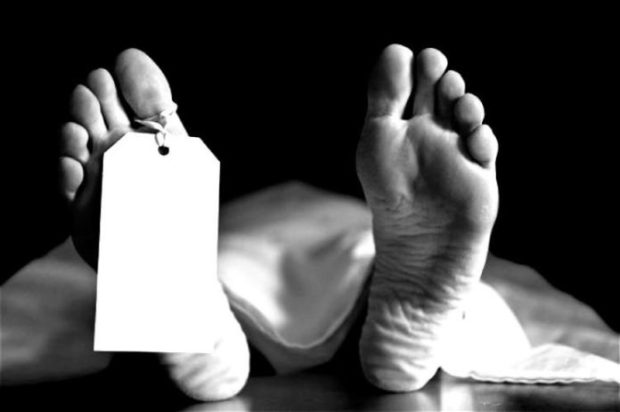Sudden cardiac arrest is a leading cause of death globally, accounting for millions of deaths each year. It is a medical emergency that occurs when the heart suddenly stops beating, which can result in death within minutes if not treated immediately. There are several medical conditions that can increase the risk of sudden cardiac arrest, such as coronary artery disease, heart failure, and arrhythmias.
According to webmd, Coronary artery disease is a condition in which the coronary arteries, which supply blood to the heart muscle, become narrowed or blocked due to the accumulation of plaque. This can lead to reduced blood flow to the heart, resulting in chest pain (angina) or a heart attack. Heart failure is a condition in which the heart is unable to pump enough blood to meet the body’s needs, leading to fatigue, shortness of breath, and fluid buildup in the body. Arrhythmias are abnormal heart rhythms that can disrupt the heart’s ability to function properly, leading to a variety of symptoms including dizziness, fainting, and palpitations.
There are several things that can increase the risk of developing these conditions, such as high blood pressure, high cholesterol, diabetes, obesity, smoking, and a sedentary lifestyle. It is important to manage these risk factors to reduce the likelihood of developing these conditions and to prevent sudden cardiac arrest.
In addition to these medical conditions, there are several other conditions that can cause a person to suddenly slump and die. These include:
Stroke: A stroke is a medical emergency that occurs when the blood supply to the brain is disrupted, leading to brain damage and potentially death. There are two types of stroke: ischemic and hemorrhagic. Ischemic stroke occurs when a blood clot blocks an artery leading to the brain, while hemorrhagic stroke occurs when a blood vessel in the brain ruptures and bleeds.
Aneurysm: An aneurysm is a bulge or ballooning in a blood vessel caused by a weak spot in the vessel wall. If an aneurysm ruptures, it can cause bleeding in the brain and lead to sudden death.
Pulmonary embolism: A pulmonary embolism is a blockage in a blood vessel in the lung that is typically caused by a blood clot. This can lead to reduced blood flow to the lungs and potentially death.
Severe allergic reaction (anaphylaxis): Anaphylaxis is a severe and potentially life-threatening allergic reaction that can cause symptoms such as difficulty breathing, hives, and swelling. It can occur within minutes of exposure to an allergen and can lead to sudden death if not treated promptly.
Epilepsy: Epilepsy is a neurological disorder characterized by recurrent seizures. Seizures can cause a person to lose consciousness and potentially fall and injure themselves. In rare cases, epilepsy can lead to sudden unexpected death in epilepsy (SUDEP).
Sudden infant death syndrome (SIDS): SIDS, also known as crib death, is the sudden and unexpected death of an infant under one year of age that cannot be explained after a thorough investigation. The exact cause of SIDS is unknown, but it is believed to be related to factors such as sleep position, exposure to tobacco smoke, and certain medical conditions.
Foods to Avoid
In addition to managing medical conditions and risk factors, certain foods and drinks can also increase the risk of sudden cardiac arrest and other medical emergencies. Here are some examples of foods and drinks to avoid:
High-salt foods: Consuming too much salt can increase the risk of high blood pressure, which is a major risk factor for heart disease and stroke. Some examples of high-salt foods include processed meats, snack chips, and fast food. It is important to limit your intake of these foods and choose low-salt alternatives whenever possible.
High-fat foods: Foods that are high in saturated and trans fats can increase the risk of high cholesterol and heart disease. These types of fats are found in foods such as fried foods, processed meats, and full-fat dairy products. It is important to choose foods that are lower in fat, particularly saturated and trans fats.
Alcohol: While moderate alcohol consumption may have some potential health benefits, excessive consumption can increase the risk of several health problems, including high blood pressure, liver disease, and stroke. It is important to limit your alcohol intake to reduce the risk of these conditions.
Caffeine: While moderate caffeine consumption is generally safe, excessive consumption can cause side effects such as insomnia, irritability, and heart palpitations. It is important to limit your intake of caffeine-containing beverages such as coffee, tea, and energy drinks.
Sugar-sweetened beverages: Beverages that are high in added sugars, such as soda, sports drinks, and sweetened coffee and tea, can contribute to the development of obesity, diabetes, and heart disease. It is important to choose water and other low-sugar beverages instead of these sugary drinks.
Conclusion
Sudden cardiac arrest and other medical conditions that can cause a person to suddenly slump and die are a major health concern globally. It is important to be aware of the risk factors for these conditions and to take steps to reduce the risk, such as managing medical conditions, avoiding risky behaviors and foods, and getting regular medical check-ups. By taking these precautions, we can help to reduce the likelihood of sudden cardiac arrest and other medical emergencies.
 Home Of Ghana News Ghana News, Entertainment And More
Home Of Ghana News Ghana News, Entertainment And More





